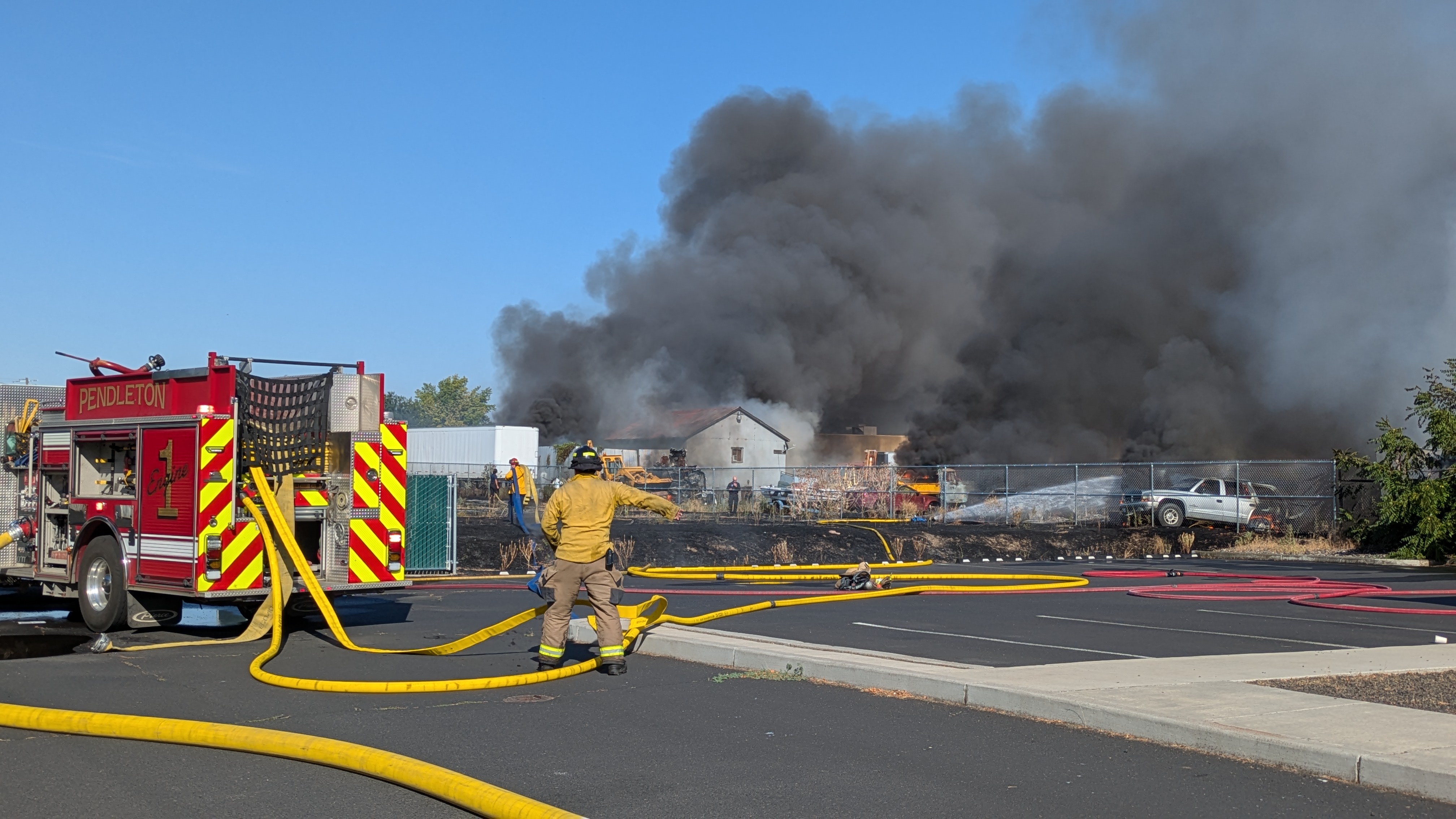Navigating the challenges of mental health
Published 7:00 am Tuesday, April 1, 2025
Rivers Edge Acute Center for Healing provides care for those struggling with mental health
HERMISTON — Caitlin Scidmore agreed to admit herself to the Rivers Edge Acute Center for Healing after experiencing an episode of instability and anxiety, a mental health issue she has struggled with in the past but is now learning to cope with for a better future.
Scidmore sits on the edge of the bed in a room at the treatment facility, her hands clasped as she gazes out the window, with morning light slanting through the blinds.
“ I took my mom’s dog out for a walk,” Scidmore said. “I was out of my mind, unstable. My mom called the cops because she was worried about me and couldn’t find her dog — because I took off with it. Once the police found me, they called my mom.”
Trending
Her mother drove to the location, retrieved her dog and got her daughter admitted to Rivers Edge Acute Center for Healing — also known as REACH — in Hermiston.
Within three weeks, Scidmore was discharged from the facility but experienced another episode of instability at home. She was sent to Cedar Hills Hospital and returned to REACH in January.
REACH opened its doors in April 2024 as a dual-licensed facility providing long-term residential treatment, where clients stay for two to six months or longer, and short-term urgent care for acute mental treatment needs.
Scidmore is a long-term resident learning to cope with her anxiety.
“It was really hard,” Scidmore said.
Before coming to the facility, she took anxiety medication twice, sometimes three times a day. Now, she has only half the dose, she said.
Trending
Despite the lower dosage, the facility has taught her how to manage the things that trigger her anxiety and how to work through those feelings, Scidmore said.
“ I get triggered sometimes by other people’s actions and behavior,” Scidmore said. “I get triggered by other people’s actions and behavior more so than I did before I came.”
Kymberli Mills, administrator of REACH, said the treatment facility strives to foster human connections with individuals, helping them understand that having bad days is normal and that it doesn’t mean they have a bad life.
“Let us walk beside you and see how we can help you,” Mills said.
Seeking mental health treatment in Eastern Oregon
Mills said REACH is the only licensed secure residential treatment and regional acute treatment facility, not just in the region, but in the state.
According to REACH’s 2024-25 statistical report, the facility has provided care to 92 residents, including 50 males, 40 females and two transgender individuals. Of the 92 total residents, 13 were in long-term residential care, while 79 were acute care patients needing immediate stabilization.
The psychiatric clinic offers 15 rooms, each furnished with a bed, a wardrobe, a bureau and a bathroom with a curtain instead of a door.
About six rooms are designated for individuals in need of longer-term psychiatric residential care, where clients stay for two to six months or longer.
The remaining beds are for individuals who receive care either voluntarily, recognizing a need for help, or through a legal process.
Individuals accused of a crime may be unable to participate in their trial due to mental illness. In such cases, the court may order treatment, often at Oregon State Hospital, to help them become well enough to “aid and assist” in their defense, according to the Oregon Health Authority website.
People experiencing mental health issues come primarily from Eastern Oregon, with Umatilla County accounting for 82% of all admissions. Union County is the second at 8%. Other counties that have contributed to admissions include Morrow at 4%, Baker at 3%, Wallowa at 2% and Yamhill at 1%, according to the facility’s statistical report.
A difficult road to walk
At REACH, people are treated for a range of mental health diagnoses, with schizophrenia being the most common, followed by depressive disorder.
The staff addresses a spectrum of diagnoses and supports recovery across various
mental health challenges, including anxiety disorders, personality disorders, post-traumatic stress disorder, developmental disabilities and dual diagnoses — co-occurring mental health and substance use disorders.
Trevor Prow, assistant administrator of REACH, said one of the challenges the staff faces is helping individuals who may not recognize they need assistance, while Mills noted that sometimes clients may disagree with their diagnosis.
“Sometimes making those personal connections with clients and the focus we place on that can be a difficult road to walk,” Prow said.
However, the program has made great strides and has become easier with practice, Prow added.
Clients are provided with daily therapeutic services, including medication stabilization, counseling, skills training and care coordination.
Mills said an on-site mental health therapist evaluates an individual’s psychological well-being and mental health status, providing one-on-one therapeutic sessions. Additionally, residential associates and mental health associates lead mental health and skills-based groups throughout the day.
“It’s not just treating mental illness; it’s about addressing all factors that contribute to it, which has allowed them to better care for the people in the communities,” Prow said.
Stephanie Klucas, care coordinator of REACH, said the biggest testament to their work is when clients leave the facility but continue to check in and update them on how they are doing.
“ Mental health has come a long way in the last 25 years,” Prow said.
Prow noted the state of Oregon still is playing catch-up in terms of mental health infrastructure — facilities like REACH are few, and the need remains high.
However, he added, Oregon is on the right track by better recognizing and addressing the needs of different demographic groups and populations.
“A lot of us that work in this field do so for our own reasons, because of our own experiences,” Prow said. “You’d be hard-pressed to find anybody really out in the community that hasn’t had an instance where they struggled with their own mental health. And I think that being able to openly discuss that helps the clients know that they’re not alone.”
After being admitted into the facility and receiving care, Scidmore said she feels more stable.
“Always seek out help,” Scidmore said. “Even when you think that help’s not possible, always ask for help. It’s always there.”
Rivers Edge Acute Center for Healing is open 24 hours a day, seven days a week at 1212 W. Linda Ave. in Hermiston. Individuals who are experiencing mental health issues can reach the facility at 541-656-1009.










